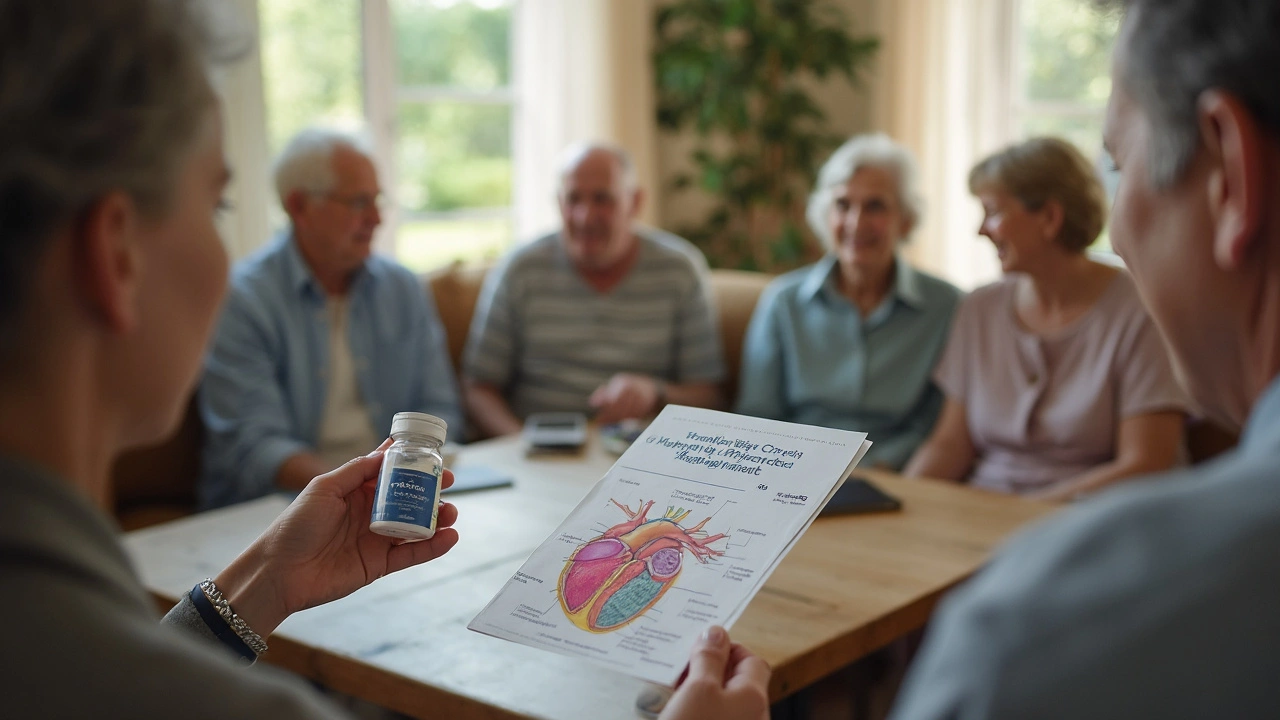Heart Health: Practical Tips and Medication Safety
Your heart does the heavy lifting—every minute of every day. Small daily changes can cut risk, improve energy, and make medications work better. This guide points to simple steps, common meds you might see on MarleyDrug, and when to call your doctor.
Daily habits that help
Move more. A 30-minute walk most days lowers blood pressure and improves circulation. You don't need a gym—park farther, take stairs, or do quick home routines. Eat with purpose: favor vegetables, whole grains, lean proteins, and reduce added sugar and salt. A small swap—seasoning with herbs instead of extra salt—can make a big difference. Sleep matters too; aim for roughly seven hours and treat poor sleep as a risk factor, not just tiredness.
Medication basics and safety
Lots of common drugs affect the heart. Blood thinners like dabigatran reduce stroke risk but raise bleeding risk—don't mix them with heavy alcohol or new supplements without checking with your prescriber. Diuretics such as Lasix help fluid buildup in heart failure, but alternatives exist if you get side effects; follow monitoring advice for electrolytes. After a stroke, drugs like nimodipine support recovery in specific situations—stick to prescribed timing and report headaches or dizziness promptly.
Know your numbers: blood pressure, resting heart rate, cholesterol and blood sugar. Share these with your clinician before changes in prescriptions. If a new drug causes swelling, odd bruising, or sudden weight gain, contact your provider—those signs can signal heart-related problems or drug interactions.
Weight and metabolism affect the heart. Some diabetes drugs and weight-loss medications change appetite and fluid balance. Tell your doctor about all meds, including online purchases, herbal supplements, and over-the-counter pills. Quality varies online; use reputable sources and watch for unrealistic prices or missing contact details.
When to call for help: chest pain, sudden breathlessness, fainting, or a rapid irregular heartbeat are urgent. For non-urgent issues—new medication side effects, minor swelling, or dizziness—book a same-week appointment or message your care team. Early adjustments are easier than emergency fixes.
Practical checks at home: keep a blood pressure cuff, track readings, and bring them to visits. Keep a one-page med list with doses and the reason you take each drug. Update it after every refill or doctor visit. That list is gold if you see a new clinician or visit urgent care.
Finally, bitesize goals beat perfection. Pick one habit—walk three times this week, swap sugary drinks for water, or organize your meds—then build on it. Small wins add up to stronger heart health and fewer surprises from medications.
Ask about routine blood tests. Some heart medicines require regular checks for kidney function, liver function, or electrolytes. Bring up alcohol use and supplements like fish oil, ginkgo, or vitamin K —they change how drugs work. If you use online pharmacies, verify a visible license, a real address, and pharmacist contact. Read labels for generic names; hospitals often use generics. Keep emergency contacts and a list of allergies with you. Start with one small step.

Crestor: Statin Benefits, Side Effects, and What You Need to Know
- May, 26 2025
- Daniel Remedios
- 12 Comments
Crestor is one of the most commonly prescribed statins for lowering cholesterol and protecting heart health. This article explains how Crestor works, what the science says about its effectiveness, what side effects people might experience, tips for taking it safely, and answers to common questions. It’s a clear, practical guide for anyone thinking about or already taking Crestor.

Exploring 6 Top Alternatives to Metoprolol for Blood Pressure Management
- Mar, 24 2025
- Daniel Remedios
- 12 Comments
Looking for alternatives to Metoprolol? We've got you covered with a detailed comparison of 6 alternatives, including pros and cons. Whether you're dealing with hypertension or looking for a better fit for your health needs, understanding your options can empower you to make informed decisions.
